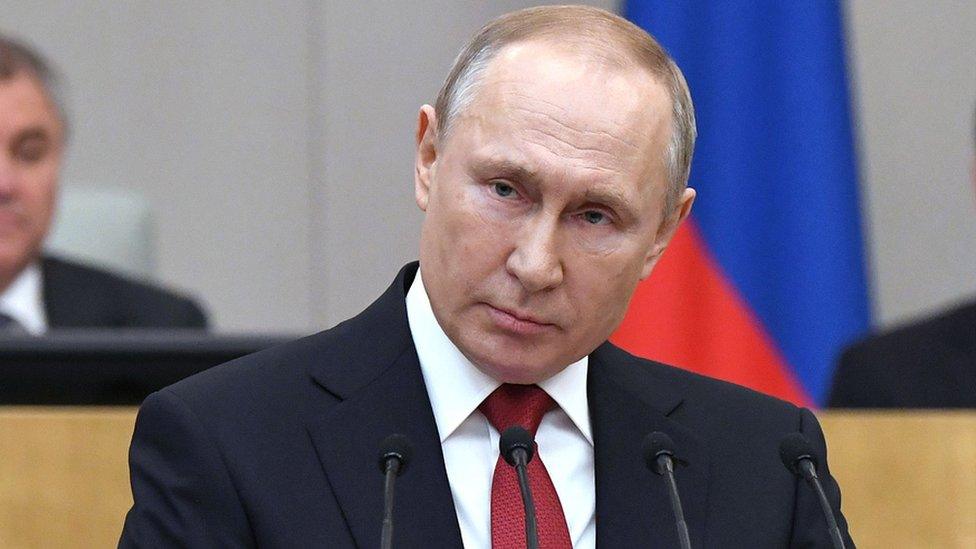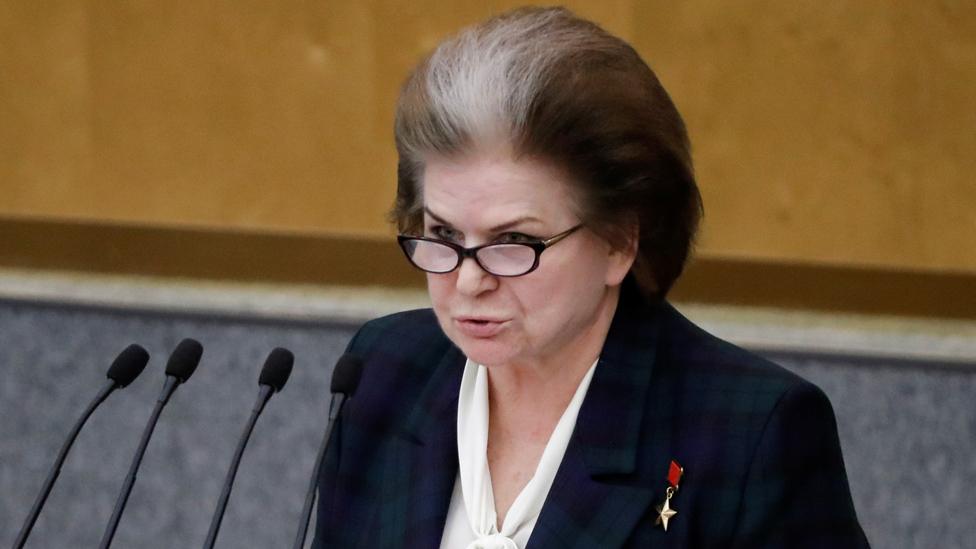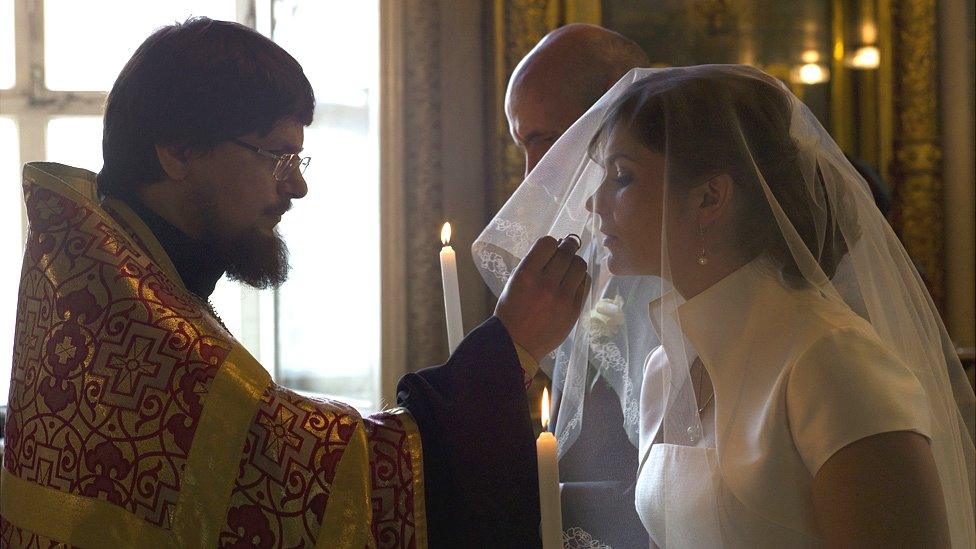Putin paves way for another presidential term
- Published

President Putin has dominated Russian politics for 20 years
Russian President Vladimir Putin has not ruled out running for president again beyond 2024, when his term ends.
But he told parliament on Tuesday that the Constitutional Court would first have to approve such a step. An MP has proposed "resetting to zero" the number of presidential terms.
Mr Putin, 67, could potentially stay in power until 2036, by winning two more six-year terms.
The former Soviet KGB officer has been in power for 20 years.
The lower house of parliament, the Duma, included the proposed "reset to zero" when it passed a draft law on changing the constitution in its third and final reading on Wednesday. The bill was also approved by senators in Russia's upper house later in the day.

In 1963 Valentina Tereshkova, as a Soviet cosmonaut, became the first woman in space
The amendments addressed by Mr Putin in his televised speech on Tuesday were put forward by MP Valentina Tereshkova, the first woman in space and a strong supporter of his presidency. Most MPs in parliament - the State Duma - are pro-Putin.


Vladimir Putin had denied, several times, that he wanted to stay on in power. So he did his best to appear reluctant to accept this proposal, framing it as a demand "from below".
Even so, he stressed the need for stability at a "tumultuous" time, suggesting that Russia is not developed enough yet for a change of president.
Many people won't have a problem with that. If they don't actually like Mr Putin, they don't mind him too much either. Plenty of people view him as a strong leader who stands up to the West. Talk of there being no alternative is also commonplace.
But this move is not without risk for the Kremlin. It now looks like the entire constitutional reform process was about ensuring Mr Putin's future, and that gives the opposition something concrete to rally against.
The last time he schemed to stay in power, engineering a temporary job-swap with his prime minister, there were mass street protests. Mr Putin's critics are now facing the prospect of him staying in office into his 80s.

By serving as prime minister in 2008-2012, Mr Putin remained at the pinnacle of power without violating the two-term rule. His close ally Dmitry Medvedev was president for those four years.
Russia will hold a "public vote" on 22 April to decide if constitutional changes will go ahead. They could significantly alter the balance of power between the presidency and parliament.
Authorities in Moscow have imposed a temporary ban on public gatherings of more than 5,000 people, citing the coronavirus outbreak. However, opposition figures argue the ban is merely an attempt to stifle dissent against the changes that allow Mr Putin to stay in power.
The reset proposal would, according to Mr Putin, mean "removing the restriction for any person, any citizen, including the current president, and allowing them to take part in elections in the future, naturally in open and competitive elections".
Ordinary Russians have taken to appealing directly to Putin to solve their problems
It could go ahead if approved by citizens in the public vote on 22 April, he said, and "if the Constitutional Court rules such an amendment would not go against (the constitution)".
Mr Putin rejected as "not expedient" a different proposal that would simply lift the current prohibition on a president serving more than two consecutive terms.
Mr Putin also said he saw no need for early elections to the Duma, rejecting another MP's proposal.
He triggered intense debate about changing the constitution when, unexpectedly, he put forward draft amendments in January. He proposed transferring some powers from the presidency to parliament.
In his speech on Tuesday, he said "a strong presidency is absolutely essential", but he added that the Duma "should get wider powers".
Such changes were needed, he said, "to strengthen our sovereignty, traditions and values" in a world in the throes of fundamental change, including new challenges such as digital technology and coronavirus.
In the long term, he said, Russia "needs a guarantee that the people in power can be changed regularly", and he insisted that "elections must be open and competitive".
He also ruled out a Western-style parliamentary system, remarking that "for years in some European countries they cannot form a government".
- Published3 March 2020
